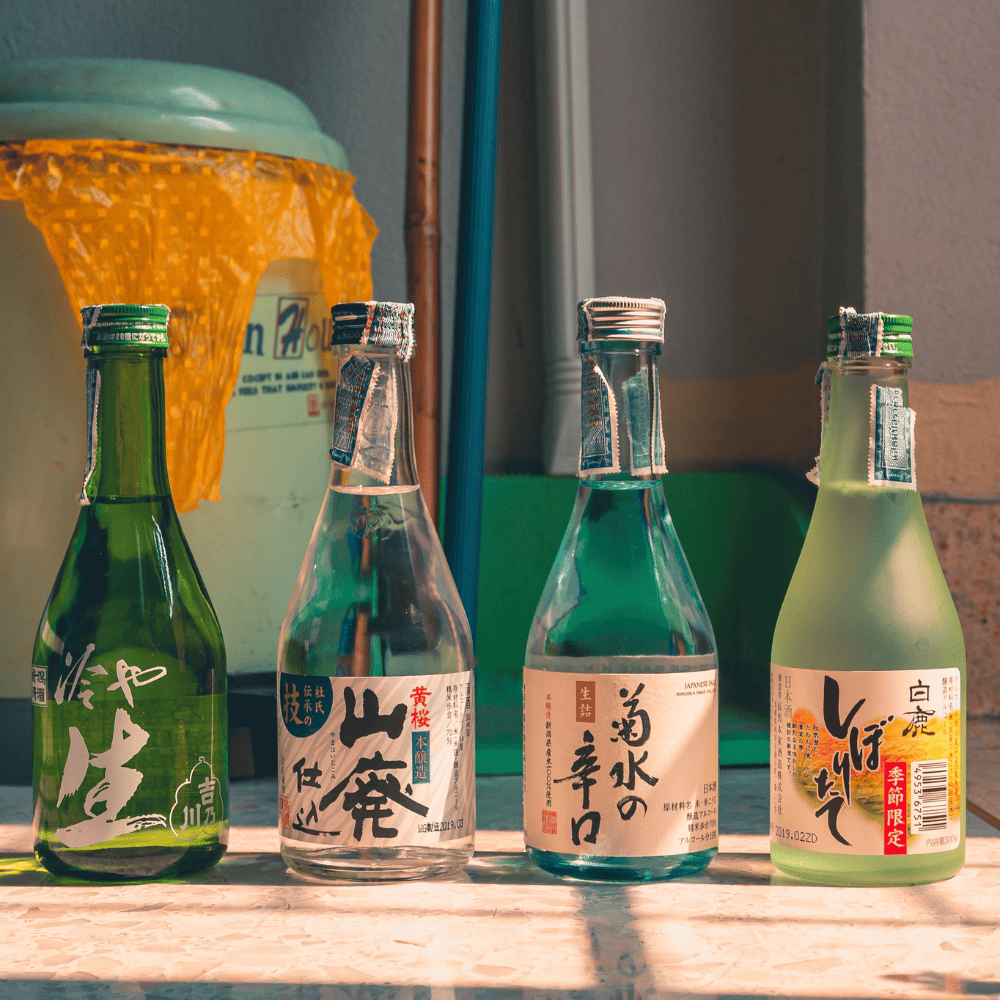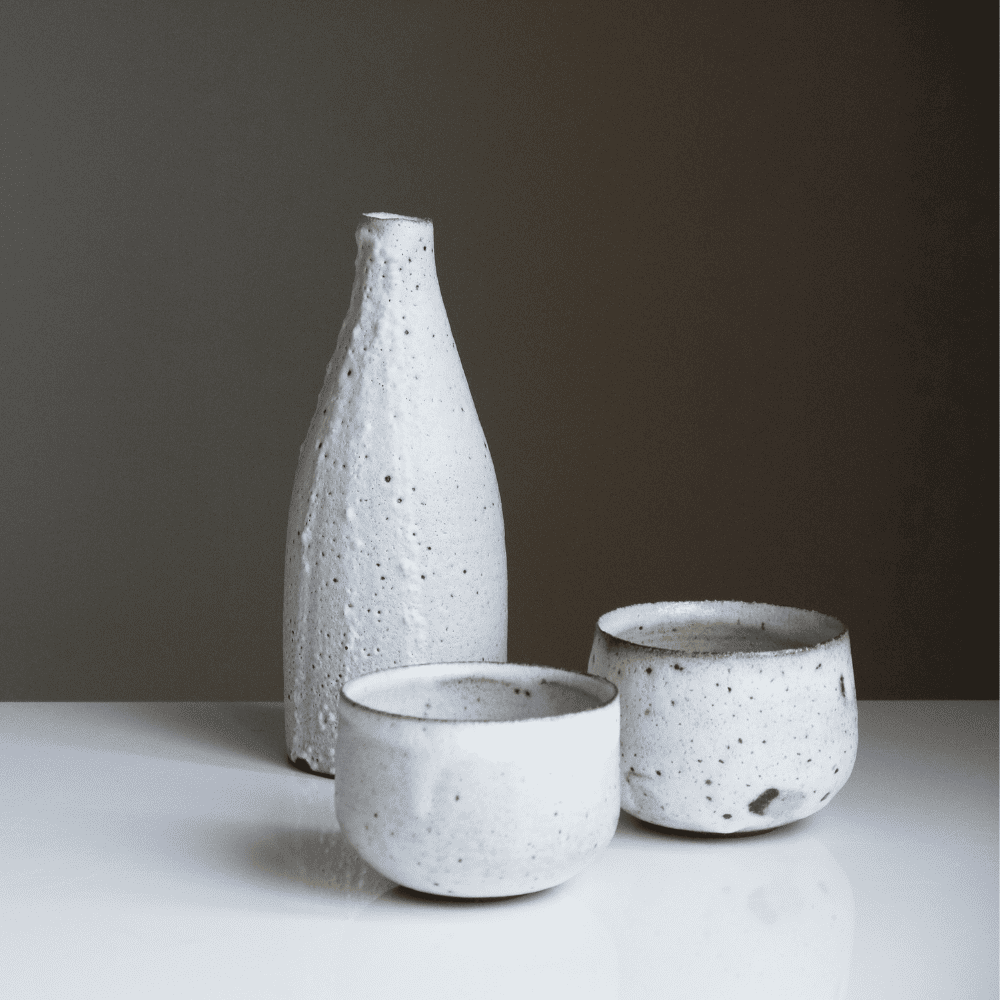If you’re a fan of sake but follow a gluten-free lifestyle, you might be wondering if there are any gluten-free sake options available.
Good news: there are!
In this guide, we’ll take a look into all things gluten-free sake, all while discussing what it is, how it’s made, and some popular gluten-free sake brands you can explore.
So grab your glass and let’s dive in!
Is Sake Gluten-Free?

Sake, a traditional Japanese rice wine, is typically made from fermented rice. And since sake is made primarily from rice, it is generally gluten-free.
However, it’s essential to consider potential cross-contamination during the production process, as some sake breweries may use equipment or additives that contain gluten.
So always be sure to double check the label to make sure there are zero gluten ingredients added or if it’s made in a facility that also deals with wheat and glutenous products.
Gluten-Free Sake Production
To ensure a sake is truly gluten-free, breweries must follow strict practices to prevent cross-contamination.
Some dedicated gluten-free sake producers take extra precautions by using gluten-free koji (a fermentation starter) and maintaining a separate production line.
These measures help minimize the risk of gluten contamination, providing peace of mind for gluten-sensitive drinkers.
Premium vs Non-Premium Sake
Premium sake is generally considered to be gluten free thanks in part to its simple manufacturing process and limited ingredients.
Premium sake goes by a few names such as:
- Junmai
- Honjozo
- Ginjo
- Daiginjo
- Junmai Ginjo
- Junmai Daiginjo
- Tokubetsu Junmai
- Tokubetsu Honjozo
Non-premium sake, also known as futjusuhu, is not always gluten free because they are allowed to include different additives in the ingredients compared to the strict rules for premium sake.
Sometimes these additives aren’t listed on the labels so there’s always a change that this type of sake could contain gluten.
Popular Gluten-Free Sake Brands
Here are all of the major and popular sake brands that are gluten free:
- Akashi-Tai
- Choya
- Dassai
- Hakushika
- Isojiman
- Gekkeikan
- Hakutsuru
- Kamotsuro
- Junmai
- Ozeki
- Sohomare
- Shichiken
- Sho Chiku Bai
- Sohomare
- Sotomare
- Soto Premium Sake
- Take Junmai
- Tamagawa
- Tentaka Shuzo
- Tozai Sake
- Tyku Junmai
Here’s a little bit more in-depth information about the more common sake brands:
1. Tozai Sake (USA)
Tozai Sake, an American sake producer, offers a diverse selection of gluten-free sake options.
Their line of sake features Junmai, Junmai Ginjo, and Junmai Daiginjo varieties, each boasting unique flavor profiles.
Tozai Sake’s dedication to gluten-free production makes them an excellent choice for those seeking quality sake produced outside of Japan.
2. Hakutsuru Sake (Japan)
Hakutsuru, one of Japan’s leading sake breweries, produces a range of gluten-free sakes.
Their Sho-Une Junmai Daiginjo and Junmai Ginjo sake varieties have garnered recognition for their exceptional taste and gluten-free status.
Hakutsuru ensures rigorous production processes to maintain the integrity of their gluten-free offerings.
3. Gekkeikan Sake (Japan and USA)
Gekkeikan, a renowned sake brand with a rich history, provides a range of gluten-free sake options.
Their Haiku Junmai, Haiku Premium Select, and Zipang sparkling sake are all gluten-free and offer delightful drinking experiences.
Gekkeikan’s commitment to traditional brewing methods combined with their gluten-free production processes ensures a top-notch product.
4. Choya Sake (USA)
Choya Sake, a well-known brand offering various umeshu and sake products, has a gluten-free line that includes their classic Junmai, sparkling sake, and flavored options like yuzu and ume.
Choya Sake’s commitment to quality and dedication to gluten-free production make them a reliable choice for sake enthusiasts with strict dietary restrictions.
The Sake Experience
When indulging in gluten free sake, it’s essential to consider personal preferences and explore different flavor profiles.
Sake can range from dry to sweet, and tasting various types can help you discover your preferences. It’s also worth trying different food pairings to enhance your sake-drinking experience.
Sake’s alcohol content can range from 13% to 17% which makes a it a bit stronger than wine.
Final Thoughts

Sake offers an exciting opportunity for sake enthusiasts who follow a gluten-free diet.
With dedicated producers implementing stringent production practices, you can enjoy the rich flavors of sake without worrying about gluten cross-contamination.
Sake brands like Choya, Hakutsuru, Tozai, and Gekkeikan (just to name a few) provide excellent options for those seeking high-quality gluten-free sake.
Thanks for reading and if you have any sake recommendations, please let us know in the comment section below.
For more gluten free alcohol brands and recommendations, check out this complete listing.






Leave a Reply